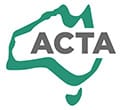AssessmentWe start with using guided tasks and case studies to teach you the theory around lesson planning, classroom management strategies, English language and teaching techniques, resource selection (and so much more!).
We then work with you to develop your skills as a teacher through the practical placement program. This combination of theory and practical is the perfect balance to give you the knowledge, skills and real experience to teach English to speakers of other languages anywhere in the world, regardless of what language is spoken. The course is structured by a series of tasks that address the topics of each unit. Your Trainer will be there to give you guidance on how to complete the assessment tasks and also provide you with feedback as you progress through the course. The types of assessment tasks include:
|
|
The assessment is competency based. This means that you will be graded as 'competent' (C) or 'not yet competent' (NYC). If you are graded NYC you will be provided with specific feedback about how to improve and given another opportunity to resubmit you assessment. You need to be assessed as competent in all of the assessment tasks in order to be awarded your qualification.
Students must complete Practical Placement in order to be awarded the full qualification.
The International Certificate, Certificate IV and Diploma courses all have holistic assessment. This means that students must complete all assessment for the whole course to be awarded the full qualification (except for Unit 1 - TESCIE001 -Create a culturally inclusive learning culture, and Unit 9 - TESDRF001- Develop Resource Files). If a student withdraws from the course after completing the theory of the course, but before they have completed all practical placement, then they may be awarded a few units of competency (depending on assessment items completed).
Assessment is submitted via the LTi TESOL Online Student System (TOSS).







